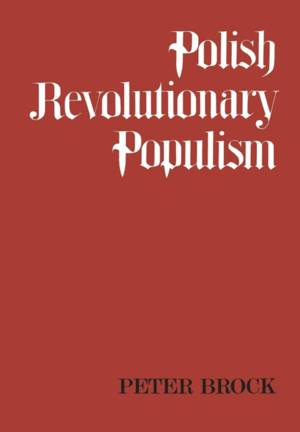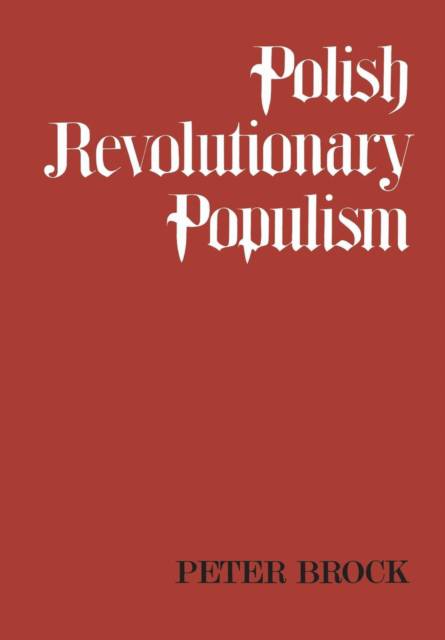
- Retrait gratuit dans votre magasin Club
- 7.000.000 titres dans notre catalogue
- Payer en toute sécurité
- Toujours un magasin près de chez vous
- Retrait gratuit dans votre magasin Club
- 7.000.000 titres dans notre catalogue
- Payer en toute sécurité
- Toujours un magasin près de chez vous
Polish Revolutionary Populism
A Study in Agrarian Socialist Thought from the 1830s to the 1850s
Peter BrockDescription
Polish populism, which advocated agrarian socialism by either revolutionary or reformist means, emerged first among the émigrés who had left Poland after the Russians defeated the nationalist uprising of 1830. In exile they came into contact with the ideas of French 'Utopian' socialists such as Babeuf, Saint-Simon, Fourier, and Cabet, and they attempted to adapt these ideas to the very different conditions prevailing in their east European homeland. Thus this version of populism preceded in time, and probably influenced, the emergence of the ideas of the better-known Russian narodniks.
Polish Revolutionary Populism describes the activities and conflicting ideologies of the various organizations, abroad and in partitioned Poland, which were struggling for national independence and for agrarian and social reform. Like the author's recent work, The Slovak National Awakening, this book deals with the emerging national aspirations characteristic of central and eastern Europe at the time and with the variety of political and social theories that made debate so acrimonious.
Spécifications
Parties prenantes
- Auteur(s) :
- Editeur:
Contenu
- Nombre de pages :
- 134
- Langue:
- Anglais
- Collection :
Caractéristiques
- EAN:
- 9781442652309
- Date de parution :
- 15-12-77
- Format:
- Livre broché
- Format numérique:
- Trade paperback (VS)
- Dimensions :
- 170 mm x 244 mm
- Poids :
- 226 g







